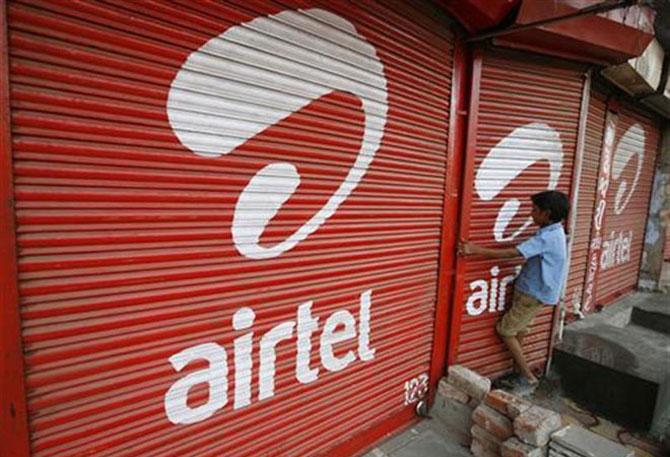Bharti Airtel has quietly narrowed its adjusted gross revenue (AGR) market share gap with Reliance Jio, the country’s largest player in the game, in the last three years.

Despite Jio’s aggressive entry into 4G and now into 5G, Airtel’s gap with Jio, which was 6.4 percentage points in Q1 of FY21 and went up to 7.2 percentage points in Q1 of FY22, has fallen to only 4.4 percentage points in Q1 of FY24.
Currently, Reliance Jio’s AGR market share is 41.6 per cent while Airtel’s is at 37.2 per cent.
In Q3 FY23 the gap between the two was 4.9 percentage points. And in Q1 of FY23 the gap was at 5.4 percentage points.
According to ICICI Securities, which has looked at the trend closely, Bharti’s average AGR in the past 13 quarters was 35 per cent while the incremental AGR market share was 49 per cent.
Bharti, it says, has benefited from the 4G rollout in the traditionally weaker circles and in rural areas.
Also, Reliance Jio’s 5G network is temporarily dragging down its incremental revenue due to the unlimited data offer.
What is interesting is that in the past 13 quarters, Airtel’s incremental AGR market share has been higher than its underlying market share, says ICICI Securities.
What’s more, in comparison with Jio, Bharti’s cash EBIT has grown much faster in the past couple of years.
For instance, Bharti’s EBIT grew year-on-year in Q1 FY22 by 60.81 per cent compared to Jio’s growth of 28.9 year-on-year.
Similarly, in Q2 of FY24, EBIT growth year-on-year for Bharti was 23.8 per cent compared to Reliance Jio, which grew much slower at 10.5 per cent.
Of course, part of this reason, says ICICI Securities, has been Bharti’s more measured investment and capital allocation compared to Reliance Jio which has been far more aggressive in its investments.
Airtel also had the advantage of a lower base initially.
All this is despite the fact that Airtel is charging its 5G-related costs to its profit and loss account, which Jio has still not begun, pending its commercial rollout of 5G.
The variance in capital allocation between the two can be seen from their numbers.
Bharti’s net fixed assets have grown at a compounded annual growth rate (CAGR) of 11.36 per cent amounting to Rs 2,384 billion over the period FY20-FY23 driven by spectrum purchase and investment in the network, which included 4G expansion as well as the rollout of 5G.
However, Reliance Jio’s net fixed assets grew at a CAGR of 28.3 per cent to Rs 3,772 billion, with the company renewing its 800 Mhz spectrum and buying a large share of the sub-Ghz spectrum to augment its 4G and 5G offerings.












 © 2025
© 2025